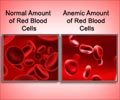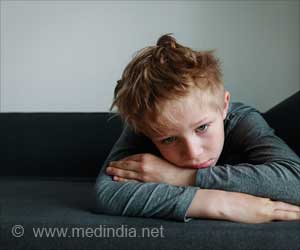According to the National Family Health Survey III (2005-06), 69.5% children in the age group 6 – 59 months are suffering from anemia of which 63% are in the urban areas and 71.5% in the rural areas.
According to the National Family Health Survey III (2005-06), 69.5% children in the age group 6 – 59 months are suffering from anemia of which 63% are in the urban areas and 71.5% in the rural areas.
Anemia is a multifaceted problem. The important reasons for widespread anemia are inadequate intake and absorption of iron from cereal based diet, inadequate consumption of green leafy vegetables and citrus fruits, frequent pregnancies with shorter intervals, high prevalence of infections and infestations, faulty feeding practices and lack of dietary diversification. Apart from aforesaid factors, illiteracy, poverty and general economic and social development have a bearing on the incidence of anemia among people of our country.Government has initiated several measures to improve the health and nutritional status including anemia amongst the people.
Measures to reduce the nutritional Anemia
Government has initiated various measures to improve the nutritional status including anemia in the population. The measures are:1. The Reproductive and Child Health Programme (RCH-II) provides iron and folic acid tablets to all pregnant and lactating women and preschool children for anemia control. Now it has been decided that children 6 months to 5 years would be given 20 mgs iron and 100 mcg folic acid supplement in liquid form. Children 6-10 years would be provided with 30 mg iron and 250 mcg folic acid while adolescents in the age group 11-18 years would receive the same dose as adults.
A village link worker (ASHA) under the NRHM will orient the community on the importance of Nutrition and shall be provider of IFA tablets besides orienting the community on other health related issues.
The States have been advised to organize monthly Health & Nutrition days where anemia prevention measures are also discussed.
Supplementary food is also provided through National Programme of Nutritional Support to Primary Education (Mid-day Meal programme) to school going children.
4. Nutrition Education to increase the awareness and bring about desired changes in the dietary practices including the promotion of breast feeding and dietary diversification.
5. Other measures initiated by the Government to imporive the Nutritional Status of the people are:
Improving agricultural and horticulture produce
Improving the purchasing power of the people through income generating schemes
Availability of essential food items at subsidized cost through Targeted Public Distribution system and Public Distribution System.
6. Programmes for prevention of Specific Micronutrient Deficiency Disorders other than iron deficiency
Under RCH programme Vitamin A supplements are provided to children till 5 years of age.
National Iodine Deficiency Disease Control Programme (NIDDCP)
7. Pilot initiatives on fortification of micronutrients with atta (flour), oil etc.
8. As part of filariasis control Hetrazan along with Albendazole are administered as part of filariasis control. Deworming helps improve anemia.
9. National Malaria Control Programme.
This information was given by the Minister for Health & Family Welfare, Dr. Anbumani Ramadoss in a reply to a question in the Lok Sabha.
Source-ANI
SRM /J
 MEDINDIA
MEDINDIA
 Email
Email










